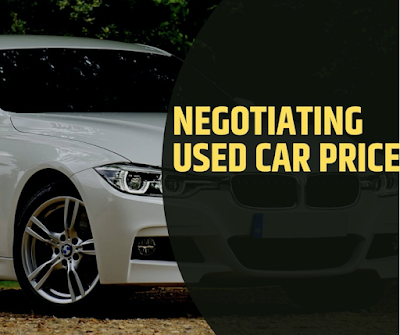The Art of Negotiating a Used Car Price
Purchasing a second-hand car can be a wise financial choice, but it can also be quite tricky. Negotiating the price is a crucial part of the process, and if done correctly, it can save you a considerable amount of money. Let's explore this process and learn how to become a skilled negotiator.
Checking Prices
When you're in the market for used cars in san diego, the first step is to check prices. The cost of a used car can vary significantly depending on where you're shopping. Each has its pricing strategy, from new car dealerships to independent used car lots and from used car retailers to private-party sellers. Private-party cars typically have the lowest selling price, while Certified Pre-Owned (CPO) cars usually cost the most.
To ensure you're getting a fair deal, it's essential to know the average price for the model you're interested in. Websites like Edmunds provide a suggested price for each vehicle based on its make, model, year, and condition. This information can serve as a valuable benchmark when you start negotiating.
Locating Used Cars for Sale
Once you have a good idea about pricing, the next step is to locate used cars for sale in your area. There are numerous online platforms where used cars are listed for sale. These platforms allow you to filter your search based on factors such as mileage, price, features, and the dealer's distance.
When searching for a car to purchase, it's essential to look for one close to you. This will make it easier for you to inspect the vehicle and negotiate the price. By finding a car that matches your preferences and is nearby, you can arrange a visit to see it in person and assess its condition with ease.
Checking the Vehicle History Report
Before you get too attached to a car, it's crucial to check its vehicle history report. This report can reveal vital information about the car, such as whether the odometer has been rolled back or if it has a salvage title, which means it has been declared a total loss by an insurance company.
You can obtain a vehicle history report from sources like AutoCheck and Carfax using the car's Vehicle Identification Number (VIN). Some dealerships even offer these reports for free if they have the vehicle in their inventory. This step is essential to avoid buying a car with hidden problems.
Getting the Car Inspected
If the vehicle history report checks out, the next step is to get the car inspected. Even if the car looks good and runs well during a test drive, having it inspected by a professional mechanic is still a good idea. They can spot potential issues that you might miss.
Arrange for a pre-purchase inspection, typically costing between $100 and $200. It's a smart investment that can save you from buying a car with hidden problems. Most sellers will allow you to take the car for an inspection. It might be a sign that they're hiding something if they don't.
Negotiating a Good Deal
Now comes the most exciting part - negotiating a good deal. Many people dread this part, but it mustn't be stressful. The key is to be reasonable and have a plan. Start by deciding how much you're willing to spend on the car. However, don't reveal this number to the seller.
Make an opening offer that is lower than your maximum price but still reasonable based on your research. Be prepared to explain why you're offering this amount. If the seller counters your offer, stay calm and negotiate until you reach a price that both parties are happy with. Negotiation is a two-way street, and both parties should feel satisfied with the final deal.
Finalizing the Paperwork
Once you've negotiated a good deal, it's time to finalize the paperwork. If you're buying from a dealership, you'll sign the contract in their finance office. If you're buying from a private seller, ensure they properly transfer the title and registration to you.
Before you hand over the money, ask for the title and have the seller sign it. Also, check with your local motor vehicle department to ensure there are no past-due registration fees. Lastly, don't forget to arrange for insurance before you drive your new car home.
Conclusion
If you're negotiating a used car price, it may seem overwhelming. However, you can become skilled in this area with adequate knowledge and preparation. It's essential to conduct thorough research, stay patient, and be willing to walk away if the deal doesn't seem satisfactory.


Post a Comment